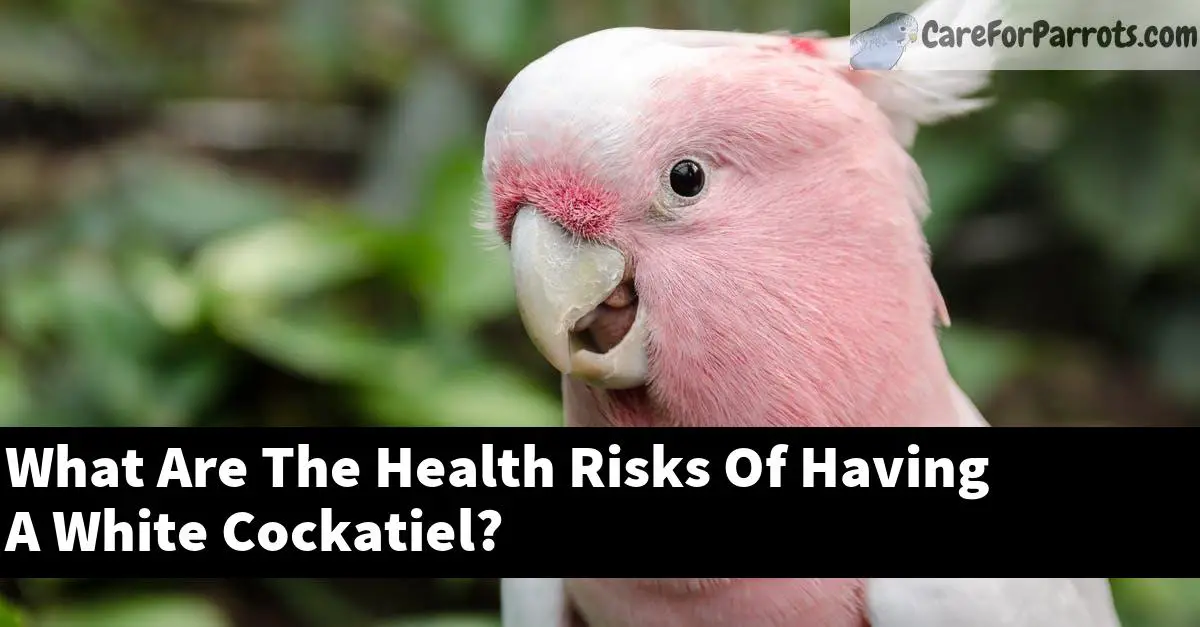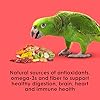There are a few health risks associated with owning a white cockatiel. These birds can be very sensitive to environmental changes, so if you live in an area with a lot of wind or change in temperature, your cockatiel may experience health issues. Additionally, white cockatiels are also susceptible to color blindness, so if you have another bird in the home, it is important to keep their colors in mind when you are training your cockatiel.
Table of Contents
What are some of the health risks associated with owning a white cockatiel?
The health risks associated with owning a white cockatiel can depend on a variety of factors, including the bird’s environment and diet. Some of the more common health concerns include:
• Excessive feather picking
• Obesity
• Heart disease
• Carcinogenesis
• Neoplasia
• Osteoporosis
Excessive feather picking can cause the bird to lose a significant amount of its feathers, which can lead to health problems such as extreme heat exposure and skin infections.
Obesity is another common health issue associated with white cockatiels, as these birds tend to be very heavy. This can lead to problems such as joint pain, heart disease, and diabetes.
White cockatiels are also susceptible to heart disease, as these birds tend to have a high stress level due to their captivity. Additionally, white cockatiels are often fed a high-fat diet, which can lead to obesity and heart disease.
White cockatiels are also at risk for developing cancer, as these birds are prone to developing tumors. The bird’s diet and environment can also contribute to the development of cancer.
White cockatiels are also at risk for developing osteoporosis, as these birds have a low bone density.
Overall, owning a white cockatiel is not necessarily harmful to the bird’s health, but it is important to monitor the bird’s health and keep track of any issues that may arise.
Matiniy 2 Pcs Pirate Parrot on Shoulder Life Sized Artificial Parrot Toy for Costume Dress-up Accessory for Halloween Party(Multicolor)
$14.99 (as of 24/02/2026 22:51 GMT +03:00 - More infoProduct prices and availability are accurate as of the date/time indicated and are subject to change. Any price and availability information displayed on [relevant Amazon Site(s), as applicable] at the time of purchase will apply to the purchase of this product.)Bird Toys, Parrot Toys for Large Birds,Natural Corn cob and Loofah Slices Bird chew Toys for African Grey Parrots, Macaws, Cockatoos, Amazon Parrot and other Small and Medium-Sized Parrot (Colorful)
$12.97 ($12.97 / count) (as of 25/02/2026 00:17 GMT +03:00 - More infoProduct prices and availability are accurate as of the date/time indicated and are subject to change. Any price and availability information displayed on [relevant Amazon Site(s), as applicable] at the time of purchase will apply to the purchase of this product.)Kaytee Fiesta Parrot Food, Nutritious and Fun Blend, Supports Skin, Feather, Digestion, Brain and Heart Health, 4.5 pounds
16% OffAre there any special care requirements for white cockatiels?
There are no specific care requirements for white cockatiels, other than regular cleaning and feeding. White cockatiels are just as likely to get sick as any other cockatiel, but because their coloration makes them more visible to potential predators, they may be more prone to getting sick.
What do I need to know about white cockatiel nutrition?
There is no one-size-fits-all answer to this question, as the specific dietary needs of white cockatiels will vary depending on their age, size, and activity level. However, some basic principles that will apply to all white cockatiels are that they require a high-quality diet that includes a variety of fresh vegetables and fruits, as well as hay, seeds, and nuts.
Because white cockatiels are such active birds, they also need a lot of food to keep them nutritionally satisfied.
How can I tell if my white cockatiel is sick?
There are a few things you can do to check to see if your white cockatiel is sick. First, take the bird to a veterinarian.
If the cockatiel is not eating or drinking, has a loss of appetite, or is lethargic, the bird may be sick. If the cockatiel has a greenish tinge to its plumage, it may be sick.
If the cockatiel is drooling or has a discharge from the mouth or nose, the bird may be sick. If the cockatiel has watery eyes or seems to be having difficulty breathing, the bird may be sick.
What are some common health problems in white cockatiels?
There are a number of health problems that can be seen in white cockatiels, including lymphoma, pericarditis, and avian influenza. Lymphoma is a cancer of the lymphatic system, and can be seen in both male and female cockatiels.
Pericarditis is a condition in which the pericardium (the sac that surrounds the heart) becomes inflamed and enlarged. Avian influenza is a virus that can be fatal to cockatiels, and is most commonly seen in birds aged two to four years old.
How can I prevent my white cockatiel from getting sick?
There are a few things that you can do to help prevent your white cockatiel from getting sick. First, make sure that the bird is getting enough fresh food and water.
Second, make sure that the bird is kept clean and free from parasites. Lastly, make sure that the bird is not exposed to any harmful weather conditions.
What should I do if my white cockatiel shows signs of illness?
If your white cockatiel seems to be unwell, it is important to take it to a vet as soon as possible. Some of the signs that your cockatiel may be ill include being lethargic, having a decrease in appetite, and having a decreased amount of water or droppings.
If you notice any of these symptoms, it is important to take your cockatiel to the vet as soon as possible. The vet will be able to determine the cause of the illness and can provide you with medical treatment.
Summary
Owning a white cockatiel can be risky because they are very sensitive to environmental changes and can be colorblind.
























